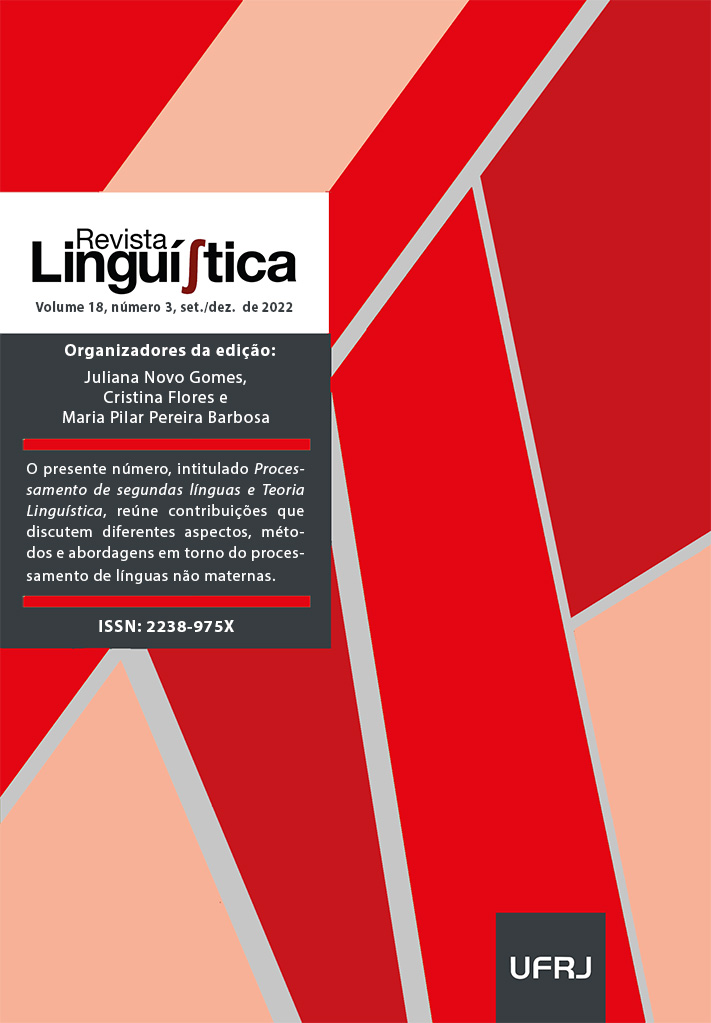L2 processing facilitation by constructional similarity: beyond word order correspondence
DOI:
https://doi.org/10.31513/linguistica.2022.v18n3a57337Keywords:
linguistic similarity, bilingual sentence processing, surprisal, middle voice, causative resultativeAbstract
Structural similarity between a bilingual’s two languages, defined by word order correspondence, reflects the surprisal levels (inverse-frequency effect) associated with sentence processing in the L2. Similarity is predicted to facilitate L2 processing due to the lower levels of surprisal of similar structures and the possibility of relying on existing mental representations and processing patterns from a bilingual’s L1. As representations of argument structure constructions map both morphosyntactic structure and underlying meaning, this study investigates the trade-off in L2 processing facilitation by constructions that present equivalent word order in Brazilian Portuguese (BP) and English but differ in their underlying meaning. A self-paced reading task was used to compare processing of causative resultatives and middle voice constructions in English by L1 BP L2 English bilinguals of varying proficiency levels, as these constructions find word order equivalents in BP that fail to convey the intended meaning due to differences in event role assignment of the adjective in resultatives and differences in lexical restrictions on verbs in the middle construction. The analyses of critical words and spillover areas through mixed-effects linear models showed significantly higher RTs for middle voice sentences in comparison to resultative sentences, with L2 proficiency showing interaction with processing of the middle construction only. The results suggest that facilitation comes from overall constructional similarity rather than from word order correspondence alone, since the lexical selection differences in the middle sentences posed higher levels of surprisal to bilinguals than the novel event role assignment of the adjective in the resultative construction.
Downloads
Published
Issue
Section
License
Authors who publish in the Revista Linguí∫tica agree with the following terms:
The authors maintain their rights, ceding to the journal the right to first publication of the article, simultaneously submitted to a Creative Commons license permitting the sharing with third-parties of published content as long as it mentions the author and its first publication in the Revista Linguí∫tica.
Authors may enter into additional agreements for the non-exclusive distribution of their published work (for example, posting in online institutional or non-profit repositories, or book chapters) so long as they acknowledge its initial publication in the Revista Linguí∫tica.

The journal Revista Linguí∫tica is published by the Post-Graduate program in Linguistics of UFRJ and employs a Creative Commons - Attribution-NonCommercial 4.0 International (CC-BY-NC).









